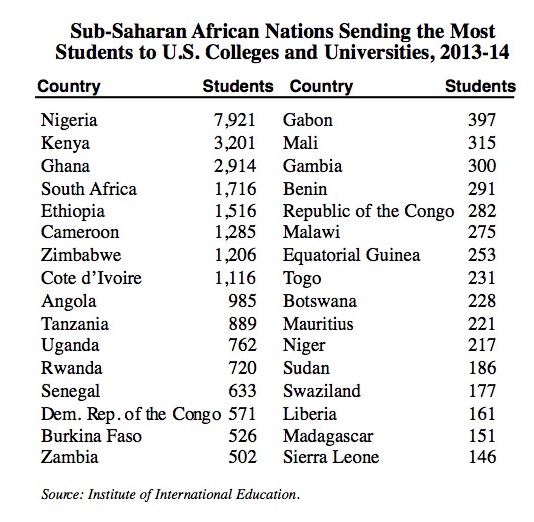
The Institute for International Education reports that in the 2013-14 academic year, there were 31,113 students from sub-Saharan Africa enrolled at colleges and universities in the United States. They made up 3.5 percent of the 886,052 foreign students at U.S. colleges and universities that year. The number of students from sub-Saharan Africa was up 1.7 percent from the prior year. But due to an overall increase in the number of foreign students of 8.1 percent, the percentage of all foreign students that were from sub-Saharan Africa decreased from 3.7 percent to 3.5 percent.
Among sub-Saharan African nations, Nigeria in 2013-14 sent the most students to American colleges and universities. That year there were 7,921 Nigerians studying here, up by more than 8 percent from a year ago. The number of students from Nigeria is more than triple the number from any other sub-Saharan African nation.
In 2013-14, Kenya ranked second, sending 3,201 students to the United States. But enrollments from Kenya have declined in recent years, including a nearly 9 percent drop this year following a nearly 10 percent drop in the previous year. Ghana ranked third with 2,914 students at U.S. colleges and universities.
South Africa, Ethiopia, Cameroon, Zimbabwe, and Cote d’Ivoire each had more than 1,000 students studying in this nation. Angola, Tanzania, Uganda, and Rwanda all sent at least 700 students to study at U.S. colleges and universities.
All told, 50 nations from sub-Saharan Africa had college students studying in the U.S. during the 2013-14 academic year.
Undoubtedly, some of these students from sub-Saharan Africa nations such as Namibia, South Africa, and Zimbabwe are White, but there is no data to report on the racial or ethnic makeup of this group of African students at U.S. colleges and universities.











